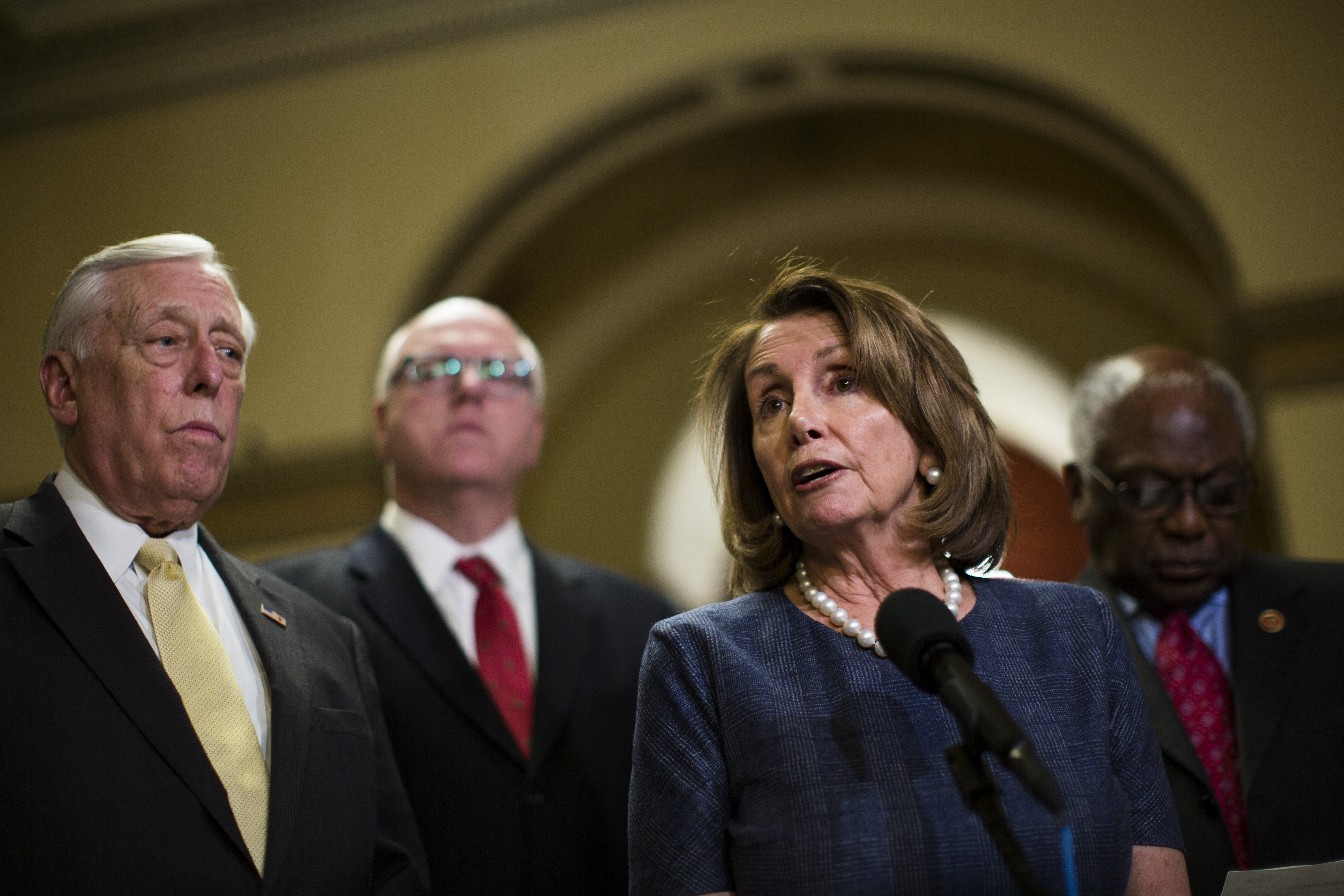Democrats' bewildering decision to hand President Trump more surveillance powers
Obama bamboozled Democrats into giving the NSA more surveillance powers. Now Trump controls the agency and they don't seem to care.


A free daily email with the biggest news stories of the day – and the best features from TheWeek.com
You are now subscribed
Your newsletter sign-up was successful
Back in 2005, The New York Times reported that President Bush had been lying through his teeth about a warrantless wiretapping program his administration had set up under the NSA. The baldly illegal program required participation from telecom companies, who were thus exposed to millions of lawsuits from their spied-on customers. Bush urged Congress to pass a bill granting the telecoms retroactive immunity, prompting outrage from Democrats, including then-Sen. Barack Obama, who promised to filibuster any bill with such an immunity provision in October 2007.
But Obama blatantly broke his promise, not only failing to filibuster the bill, but actually voting for it. That act laid the groundwork for an incomprehensible move last week by key Democrats, including House Minority Leader Nancy Pelosi and ranking Democratic member of the House Intelligence Committee Adam Schiff, to vote against an amendment requiring the NSA to get a warrant before spying on American citizens. (It is worth emphasizing that at this very moment, Donald J. Trump is the president of the United States.) It's just the latest bitter fruit from Obama's wretched civil liberties legacy.
Of course, Obama's bait-and-switch on telecom immunity was only the first step in his civil liberties record. As the Snowden documents showed, as president he embraced and in some ways expanded the Bush spying machine. His NSA used ridiculously expansive readings of legal language, data-swapping with allied surveillance programs, and straight-up illegal behavior to sweep in huge quantities of data, including that of American citizens.
The Week
Escape your echo chamber. Get the facts behind the news, plus analysis from multiple perspectives.

Sign up for The Week's Free Newsletters
From our morning news briefing to a weekly Good News Newsletter, get the best of The Week delivered directly to your inbox.
From our morning news briefing to a weekly Good News Newsletter, get the best of The Week delivered directly to your inbox.
Obama claimed after the revelations that "there is no spying on Americans. We don't have a domestic spying program." It later turned out that not only did the NSA have a "secret backdoor ... enabling it to search for U.S. citizens' email and phone calls without a warrant," but a previous domestic spying effort was halted by the notoriously NSA-friendly Foreign Intelligence Surveillance Court in 2011, which found that it was seriously illegal and that the NSA had deceived the court repeatedly when describing the program.
In other words, Obama lied.
After the Snowden revelations, there was a push for reform, which resulted in the extremely weak USA Freedom Act. Even that thing is barely functional today, as the judge presiding over the aforementioned FISC at this moment has blatantly refused to carry out reporting requirements under the law, as Marcy Wheeler explains.
When Trump was elected, I perhaps naively expected Democrats to see at least some of the problems with unchecked surveillance powers — especially given the histrionic rhetoric that features constantly among #Resistance liberals. If Trump is "going further down a dangerous and un-American path of word and thought control" by banning certain words from administration publications, as Nancy Pelosi asserts, then surely his quasi-police state powers should be trimmed?
A free daily email with the biggest news stories of the day – and the best features from TheWeek.com
Indeed, if they actually took Trump's manifest authoritarian tendencies seriously, Democrats would seize this opportunity not just to make the NSA conform with the plain instructions of the Fourth Amendment, but also to further curtail its power. The NSA director is an Obama holdover at the moment, but who knows who Trump might appoint if he ever manages to get a basic understanding of what the agency does? Paul Nehlen? Milo Yiannopoulos?
Dragnet surveillance partisans always insist that these programs simply must be renewed lest America be hit with waves of terrorism. But studies examining foiled terrorist plots find zero help from dragnet programs — which fits with a basic statistical understanding that any dragnet methodology is going to swamp investigators in false positives. Indeed, it's highly possible that a necessity to get a warrant will actually improve overall security, by forcing law enforcement to do the basic police work that is the foundation of all investigations.
But no. Not only have Democrats failed to come to grips with their mistakes during the Obama years, they're voting to renew President Trump's sweeping surveillance authority. It seems knee-jerk deference to the security state has been instilled so deeply that even the prospect of being blackmailed by the racist-in-chief can't crack their instinctive love of sweeping powers for secret spies. (That's setting aside the disturbing but can't-be-ruled-out possibility that they're already being blackmailed.)
And for that, no one is more responsible than Barack Obama. Great work all around.
Ryan Cooper is a national correspondent at TheWeek.com. His work has appeared in the Washington Monthly, The New Republic, and the Washington Post.
